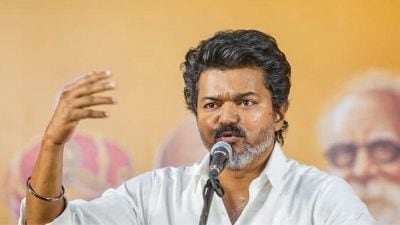PSB hijack and other stories
A trustee of millions of households, managing more than Rs 17,000 crore of deposits, is in the middle of a skirmish where the chairman has turned whistleblower — the first such instance. Ironically, it is independent directors who are expected to blow the whistle against the management. In this case they have — but with their facts and intent all wrong

The Punjab and Sind Bank (PSB) fiasco is an issue that goes beyond the bank, the banking sector, the institutional processes by which private money is controlled by public authorities or even corporate governance. It, in a manner ironical, questions the issue of crony capitalism that Prime Minister Manmohan Singh raised last month.
True, it’s finally PSB that’s under fire, with Congress party thrust ‘independent directors’ slugging it out with the bank’s chairman R.P. Singh, trading charges in public. The independent directors, two of whom are likely to get marching orders anytime now with another three following suit, claim the bank’s management led by Singh is underselling the bank. Singh in an open press conference yesterday showed how these ‘independent’ directors are interfering in the day-to-day functioning of the bank and are currying favours for their political masters, colleagues, sympathisers. On the other hand, perhaps they’re only in the self-gratification mode. Truth is on its way out and we are tracking the story.
Ironically, this is happening at a time when corporate governance is getting to be more than a fashion statement, and the ongoing debate is moving from the brute numerical strength of the independent directors to their quality, independence and what they are expected to do. Yesterday, Premchand Gupta, minister for corporate affairs, said the strength of independent directors on a company’s board should be 33 per cent, clashing with Securities and Exchange Board of India’s Clause 49 norms, which say the number should be half if the company has an executive chairman (for a company with a non-executive chairman, the required strength is 33 per cent). But what can these statistics do when the very independence of directors is being questioned? How independent will a political nominee be (and we’re not even raising competency issues like knowledge or experience in banking — one of the independent worthies on the PSB board is a matriculate)?
But more than numbers, it is the nuances that are turning out to be policy challenges — who is an ‘independent director’, what is he expected to do, what is his authority and so on. Broadly, independent directors are expected to ensure that the interests of minority shareholders in listed companies — or depositors in the case of banks — are protected. They are expected to blow the whistle if any wrongdoing is spotted and raise the issue at AGMs, EGMs and other forums. In the case of public sector banks, they are supposed to raise these issues with the government. Not with the media, as two highly ambitious independent directors of PSB did. What stakes do they have, one wonders.
Indeed, what stakes do the 32 of 37 ‘non-official’ directors, as independent directors are known in the banking vocabulary, that the UPA administration has crammed public sector bank boards with, have? Why this great urge to stuff public sector bank boards with political appointees? What’s the rush to turn an office of responsibility into an office of personal profit? PSB is just one illustration of an attempted hijack. A trustee of millions of households, managing more than Rs 17,000 crore of deposits, is in the middle of a skirmish where the chairman has turned whistleblower — the first such instance I’ve seen. Again, ironically, it is independent directors that are expected to blow the whistle against the management. In this case they have — but with their facts and intent all wrong.
The PSB case is probably a window through which to look at the functioning of all state owned banks closely. Last month, in his May 1 speech while inaugurating Institute for Studies in Industrial Development, Manmohan Singh said: “I was struck recently by a comment in the media that most of the billionaires among India’s top business leaders operate in oligopolistic markets, and in sectors where the government has conferred special privileges on a few. This sounds like crony capitalism. Are we encouraging crony capitalism? Is this a necessary but transient phase in the development of modern capitalism in our country? Are we doing enough to protect consumers and small businesses from the consequences of crony capitalism?”
If the capitalist is the ugly face of crony capitalism, the system of appointing so-called independent directors, cronies if you please, in banks like PSB by political parties is the revolting base on which it stands. Together, they make merry with public money, and easily shift the blame on capitalism. Maybe this quiet introspection and questioning of crony capitalism should be addressed to independent directors and the parties that unleash them on public sector banks, who like scavengers are turning distressed assets that can help banks turn around, as PSB has been over the past two years, into mini fiefdoms to help their friends in high places secure and legitimise their loot.
The process is rather simple: instead of asking for an open auction, these ‘independent directors’ are forcing the settlement route onto the banks they’re supposed to be guardians of. A settlement, as the word indicates, is a compromise under which the bank generally loses, as it doesn’t get market rate for a property for instance. Often, it has to forego the interest that has compounded and not been paid for over a decade. The settlement route is one way; another example is filing petitions in court to delay proceedings. For PSB, the stakes run into thousands of crores of rupees.
That’s crony capitalism, Mr Prime Minister — end it.








- 01
- 02
- 03
- 04
- 05























